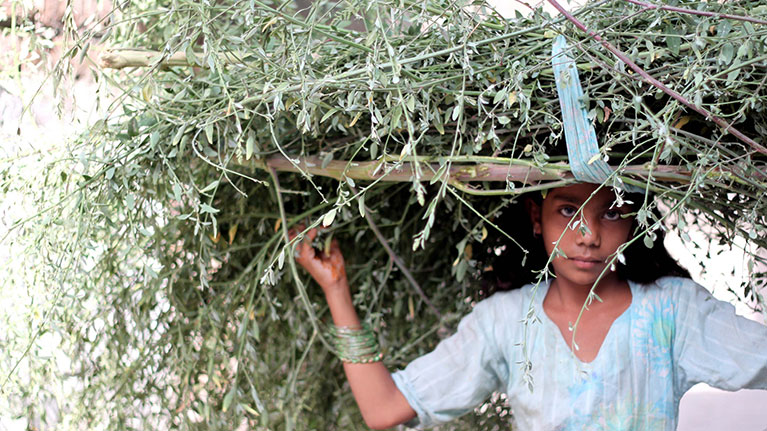Tackling Child Labour
UK Government to support ILO in fighting child labour in South Asia
New ILO UK-funded programme will concentrate on the worst forms of child labour in South Asia.

The ILO’s regional child labour programme in South Asia will support initiatives that scale up the UK Department for International Development’s (DFID) efforts to tackle child labour in the region.
The work will include a range of interventions designed to reduce the vulnerability of children, protect them from exploitation and support the elimination of child labour.
UK aid from DFID will cover ILO’s activities to support child labour elimination. These include improving data collection and monitoring mechanisms; working with governments to strengthen policies and law enforcement, public awareness-raising campaigns, and capacity building and technical assistance to help key agencies implement national action plans on the worst forms of child labour.
Despite impressive improvements in reducing child labour there is still a high prevalence of child labour in Asia... The announcement by the United Kingdom is a major contribution to the fight against the worst forms of child labour."
Beate Andrees, Chief of FUNDAMENTALS
“Despite impressive improvements in reducing child labour there is still a high prevalence of child labour in Asia, with more than 62 million children trapped in child labour, of whom more than 28 million are engaged in the worst forms,” said Beate Andrees, Chief of the ILO’s Fundamentals Principles and Rights at Work Branch (FUNDAMENTALS).
“The announcement by the United Kingdom is a major contribution to the fight against the worst forms of child labour, which is essential if we want to achieve the ambitious SDG 8.7 target, that calls to end child labour in all its forms by 2025,” she added.
During a speech at the United Nations General Assembly in New York, the UK Secretary of State for International Development, Penny Mordaunt, said: “Child slavery is truly one of the most heinous crimes imaginable. It has no place in any society. We must do more to protect and support all those at risk of falling into the clutches of people traffickers and organized criminals, but particularly those children who are most vulnerable.”
The International Programme for the Elimination of Child Labour (IPEC) is the ILO’s flagship child labour programme that has been running since the 1990’s. In 2016, a new IPEC+ Flagship Strategy was developed. It includes some significant developments, notably a shift from a focus on project work to broader policy engagement and action at a national level, and the inclusion of forced labour as well as child labour. The Programme has four key areas of activity: public policies and governance, partnerships and advocacy, empowerment and protection, and data and knowledge.